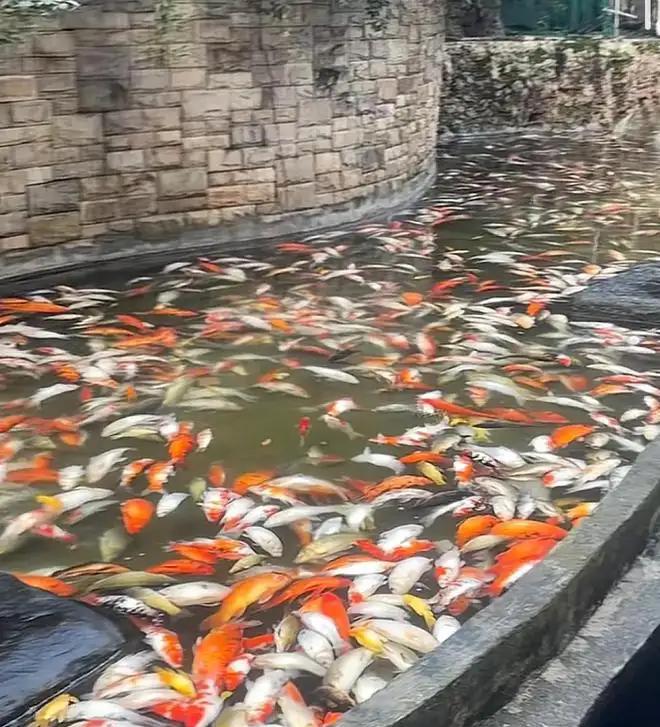Mass Fish Die-Off at Chongqing Bridge Traced to Pesticide Poisoning
A large number of ornamental fish in a viewing pool at Jialing Park in Chongqing, China died overnight on January 13, 2024. Police investigation revealed it was caused by pesticide poisoning by a disgruntled business operator.

What initially appeared as a mysterious mass fish death at a popular tourist spot in Chongqing has been solved through swift police investigation. The incident occurred at an ornamental fish viewing pool in Jialing Park near the iconic Guanyin Bridge, where hundreds of valuable koi carp were found dead overnight.
The deaths caused immediate public concern when visitors discovered the shocking scene on the morning of January 12. The once-vibrant pool, home to hundreds of ornamental fish that had delighted visitors for nearly a decade, was suddenly filled with lifeless fish floating on the surface. Environmental workers collected over 30 bags of dead fish while trying to manage the situation.
Police investigation revealed the perpetrator was Li, a 48-year-old operator of an entertainment facility in the park. Motivated by business rivalry and resentment toward another more successful operator with a similar attraction, Li poured vegetable pesticide into the fish pool around 19:40 on January 11, leading to the mass death of the ornamental fish.
The economic impact is substantial, with damages estimated at over 100,000 yuan (approximately $14,000 USD). The pool’s fish population, primarily consisting of koi carp averaging 30cm in length, represented significant value both monetarily and as a beloved public attraction.
Under Chinese law, such deliberate destruction of property can result in serious legal consequences. Li has been detained pending criminal investigation. The case highlights growing concerns about business competition turning destructive and the need for better protection of public recreational facilities.
The incident has deeply affected the local community, particularly regular visitors who had enjoyed watching the fish over the years. Many expressed sorrow at the senseless destruction of these ornamental creatures that had become an integral part of the park’s charm.
This case bears similarity to other incidents of fish poisoning at prominent locations, including one at a Hong Kong bank headquarters a year ago, suggesting a concerning pattern of using innocent creatures as targets in business disputes.